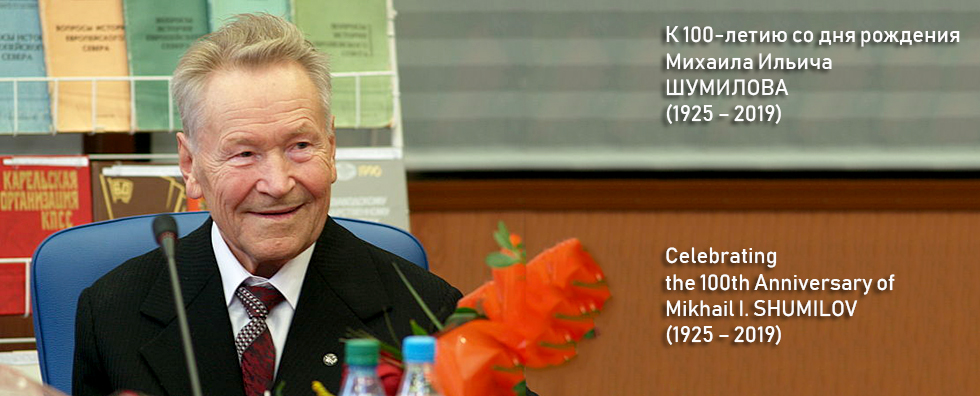References
Alekseev A.A., Belotserkovich D.V. The concept, essence and meaning of remote electronic voting. Sovremennoe pravo, 2023, No. 5, pp. 39–43. DOI: 10.25799/NI.2023.62.17.007 (In Russ.)
Borisov I.B., Golovin A.G., et al. Elections in the world: electronic voting. Moscow, Russian Public Institute of Electoral Law, 2020, 218 p. (In Russ.)
Borisov I.B., Ignatov A.V. E-voting in Estonia breaks the record. The general and special in the international development of remote E-voting. Election Legislation and Practice, 2023, No. 1, pp. 14–20. DOI: 10.18572/2500-0306-2023-1-14-20 (In Russ.)
Gadzhieva A.O. Active electoral law amid digitalization: the case of the city of Moscow. Candidate's thesis (Law). Moscow, 2023, 291 p. (In Russ.)
Kozhevnikov A.K. Experience of using E-voting tools in the G7 electoral process. StudArctic Forum, 2025, Vol. 10, No. 1, pp. 29–39. (In Russ.)
Kozhevnikov A.K., Mazein A.V. Prospects for the application of blockchain technologies in judicial activity in Russia. Proceedings of Afanasiev Readings, 2023, No. 2(45), pp. 74–77. (In Russ.)
Lebedeva N.V. Principles of the voting right: notion and problems of legal confirmation. Constitutional and Municipal Law, 2016, No. 9, pp. 56–61. (In Russ.)
Lopatin A.I. Constitutional concept of people's sovereignty in Russia and the electoral rights of citizens in the era of digitalization. Candidate's thesis (Law). Moscow, 2023, 195 p. (In Russ.)
Novikova K.Yu. Remote electronic voting: international experience. Political Science and Technology, 2022, Vol. 2, No. 1. (In Russ.)
Peskova O.Yu., Polovko I.Yu., et al. Review of approaches to the organization of electronic voting. Izvestiya SFedU. Engineering Sciences, 2014, No. 2(151), pp. 237–247. (In Russ.)
Rybin A.V. Advantages and disadvantages of remote electronic voting: prospect or dead end? Electoral Politics, 2022, No. 1 (7), pp. 1. (In Russ.)
Savchenko M.S., Kadlets V.A. Legal regulation and practice of electronic voting in foreign countries. Polytematic Online Scientific Journal of Kuban State Agrarian University, 2016, No. 117, pp. 302–314. (In Russ.)
Saurin A.A. Digitalization as a law transforming factor. Constitutional and Municipal Law, 2019, No. 8, pp. 26–31. (In Russ.)
Fedorov V.I. Electronic voting: Russian and foreign experience. Moscow, Infra-M, 2023, 237 p. DOI: 10.12737/1906057 (In Russ.)
Khudoley D.M., Khudoley K.M. Electronic voting in Russia and abroad. Perm University Herald. Juridical Sciences, 2022, No. 57, pp. 476–503. DOI: 10.17072/1995-4190-2022-57-476-503 (In Russ.)
Khorunzhiy S.N. The secrecy of the ballot: from anonymity to confidentiality. Citizen. Elections. Authority, 2021, No. 2 (20), pp. 54–62. (In Russ.)
Dandoy R. An analysis of electronic voting in Belgium: Do voters behave differently when facing a machine? Belgian Exceptionalism, 2021, pp. 44–58.
Delwit P., Kulahci E., et al. Electronic voting in Belgium: A legitimised choice? Politics, 2005, Vol. 25, No. 3, pp. 153–164. DOI: 10.1111/j.1467-9256.2005.00240.x
Gadzhieva A.O. Electronic voting technologies in elections: Russian and foreign experience. RUDN Journal of Law, 2023, Vol. 27, No. 3, pp. 649–669. DOI: 10.22363/2313-2337-2023-27-3-649-669
Goby B., Weichsel H. Das E-Voting-Erkenntnis des VfGH: gesetzwidrige Ausgestaltung der ÖH-Wahlordnung. Zeitschrift für Hochschulrecht, Hochschulmanagement und Hochschulpolitik: zfhr, 2012, Vol. 11, pp. 118–125. DOI: 10.1007/s00741-012-0051-2
Kuba O., Stejskal J. E-voting as a tool to reduce unequal voter turnout in the Czech Republic. Journal of Comparative Politics, 2024, Vol. 17, No. 1, pp. 19–31.
Kulikowska M., Ewa E. Perspektywy uregulowania powszechnego dostępu do Internetu i elektronicznego głosowania w Polsce. Studia z zakresu nauk prawnoustrojowych, 2015, Vol. 5, pp. 75–93.
Kumar S., Waila E. Analysis of electronic voting system in various countries. International Journal on Computer Science and Engineering, 2011, Vol. 3, No. 5, pp. 1825–1830.
Laver M. Analysing structures of party preference in electronic voting data. Party Politics, 2004, Vol. 10, No. 5, pp. 521–541. DOI: 10.1177/1354068804045386
Lisi M., Luís C. (Un) ready for change? The debate about electronic voting in Portugal and its implementation before and after the pandemic era. Frontiers in Political Science, 2022, Vol. 4, pp. 876866. DOI: 10.3389/fpos.2022.876866
Martínek T., Malý M. Evaluation of the I-voting system for remote primary elections of the Czech Pirate Party. Acta Informatica Pragensia, 2024, Vol. 13, No. 3, pp. 395–417. DOI: 10.18267/j.aip.249
Musiał-Karg M., Kapsa I. Postal or electronic voting? The analysis of the preferred voting methods in the context of failed electoral reform in Poland. Transforming Government: People, Process and Policy, 2021, Vol. 15, No. 3, pp. 347–359. DOI: 10.1108/TG-08-2020-0264
Musiał-Karg M., Kapsa I. The examination of voter opinions on the implementation and use of i-voting: the case of Poland. International Journal of Electronic Governance, 2022, Vol. 14, No. 1-2, pp. 195–206. DOI: 10.1504/IJEG.2022.123239
Oswald M. E-Voting in Austria: Legal determination matters. In Maurer A.D., Barrat J., eds. E-voting case law: a comparitve analysis. London, 2015, 20 p.
Pilet J.-B., Preneel B., et al. Studie over de mogelijkheid om online stemmen in België in te voeren. Studie over de mogelijkheid om online stemmen in te voeren in België. Liuk, 2021, 45 p.
Reira A., Cervelló G. Experimentation on secure Internet voting in Spain. Electronic voting in Europe-Technology, law, politics and society, workshop of the ESF TED programme together with GI and OCG (Castle Hofen, Austria, July 7–9, 2004). Bonn, Gesellschaft für Informatik, 2004, pp. 91–100.
Vegas Gonzáles C. The new Belgian e-voting system. 5th International Conference on Electronic Voting 2012 (EVOTE2012) (Castle Hofen, Austria, July 11–14, 2012). Bonn, Gesellschaft für Informatik, 2012, pp. 199–211.




